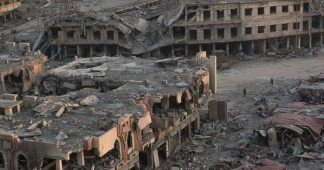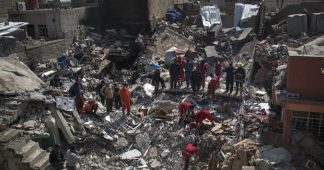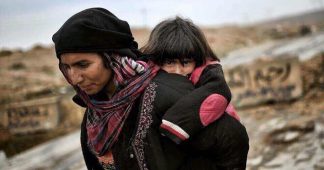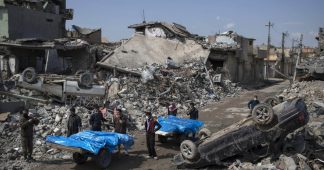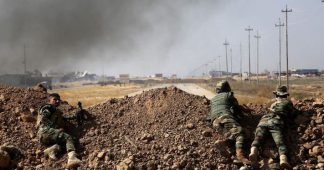More than 40,000 civilians were killed in the devastating battle to retake Mosul from Islamic State, according to intelligence reports revealed exclusively to The Independent – a death toll far higher than previous estimates.
Residents of the besieged city were killed by Iraqi ground forces attempting to force out militants, as well as by air strikes and Isis fighters, according to Kurdish intelligence services.
Hoshyar Zebari, until recently a senior minister in Baghdad, told The Independent that many bodies “are still buried under the rubble”. “The level of human suffering is immense,” he said.
“Kurdish intelligence believes that over 40,000 civilians have been killed as a result of massive firepower used against them, especially by the federal police, air strikes and Isis itself,” Mr Zebari added.
Mr Zebari, a native of Mosul and top Kurdish official who has served as the Iraqi finance minister and prior to that foreign minister, emphasised in an exclusive interview that the unrelenting artillery bombardment by units of the Iraqi federal police, in practice a heavily armed military unit, had caused immense destruction and loss of life in west Mosul.
The figure given by Mr Zebari for the number of civilians killed in the nine-month siege is far higher than those previously reported, but the intelligence service of the Kurdistan Regional Government has a reputation for being extremely accurate and well-informed. Isis prevented any monitoring of casualties while outside groups have largely focused on air strikes rather than artillery and rocket fire as a cause of civilian deaths.
Airwars, one such monitoring group, estimated that attacks may have killed 5,805 non-military personnel in the city between 19 February and 19 June.
Mr Zebari accuses the government in Baghdad, of which he was until recently a member, of not doing enough to relieve the suffering. “Sometimes you might think the government is indifferent to what has happened,” he said.
He doubts if Christians, Yazidis, Kurds and other minorities, who have lived in and around Mosul for centuries, will be able to reconcile with the Sunni Arab majority whom they blame for killing and raping them.
He says some form of federal solution for future governance would be best.
